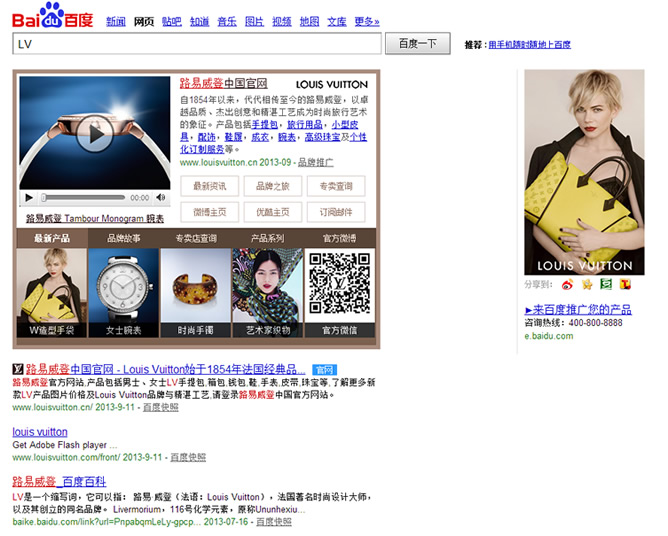
As almost 1 in 4 internet users globally are Chinese, it is little wonder that international marketers are fast gathering their troops as part of a mission to conquer the future battlefield that is China. To date, however, there are more examples of Western companies entering China and failing miserably than there are examples of brands making the leap successfully.
Yet it is no surprise. Doing business in China is nothing like doing business anywhere else in the world and its search landscape bears no resemblance to that of Western markets.
 In this in-depth interview, China search expert and long term resident T.R. Harrington provides a fascinating and extremely insightful view into the unique and ever evolving Chinese search sphere.
In this in-depth interview, China search expert and long term resident T.R. Harrington provides a fascinating and extremely insightful view into the unique and ever evolving Chinese search sphere.
According to some sources, Qihoo’s 360 search engine (so.com) now holds more than a 15% market share of the Chinese search market after launching only about a year ago. What are the main reasons behind this swift surge?
Qihoo 360’s rise has been one of the most interesting stories in China’s search engine market in the last few years. There are a few factors that contributed to their rise. 1st – the founder Zhou Hongyi has an extensive background in Search Engine development, previously founding China’s Real Name search engine, 3721.com, which he sold to Yahoo back in mid-2000s.
2nd – After leaving Yahoo he decided to found Qihoo as a Social search engine to help bring visibility to all the user generated content in China. While this initial product did not prove successful, he later pivoted Qihoo to 360, their free anti-virus product which was a significant success (they reach 60%-80% of China computers, according to some reports). They took over the browser default home page and created a Yahoo like directory of paid links that allowed the company to go public.
3rd – Seeing Google’s Chrome success penetrating the Russian market, Zhou Hongyi renewed his dream to create a search engine and created an anti-virus browser that likewise acquired significant share of the market in a relatively short time and relatively quickly ramped up to 10% query share through their browser search box. They sold this traffic to the other leading Chinese search engines such as Baidu, Google, TenCent, etc. until August of 2012 when they decided to launch their own search engine, subsequently re-launched as So.com (“so” loosely translated means “Search” in Chinese).
It has been reported that Qihoo is in talks with Sohu to acquire its Sogou search unit. How significant a threat would a Qihoo/Sogou merger pose to Baidu?
There are many rumours about this potential acquisition and Baidu and TenCent are likewise rumoured to be competing for this property. However, the reality is that this would probably only have a minor overall impact in China. From a user perspective, it is very difficult to change habits and most people will not consider leaving Baidu as their core search engine unless Baidu fails to deliver highly relevant search results. Most of Sogou’s 8% of market searches come from their portal Sohu, their Browser and a product which makes it easier for Chinese to input Chinese characters on computers. The browser combination of Qihoo and Sogou would be the biggest risk to Baidu in terms of whether they could continue to grow query share.
However, query share is just one part of the equation. Like other markets, most of search advertising (~70%) is driven by small and medium sized enterprises (SME). They do not spread their budgets on 2 plus search engines and tend to only focus on the biggest and most famous player which of course is Baidu. They generally measure their results by inbound phone calls, not online leads, so this huge advertiser demographic remains very traditional in an otherwise digital industry. Related to this is that unlike Google’s self-serve advertising platform in most developed markets, most SMEs in China are not savvy enough or willing to learn how to use the self-serve platforms and prefer instead to have a sales person manage their budgets and keywords directly. At present, the So.com self-serve platform remains a “work in progress,” i.e. is not user friendly even for sophisticated agencies.
To date, all search engines in China actually have a lower sales ratio than their query share because to reach that SME audience in China you need a large, widely distributed sales force. Even TenCent, who is a 50 Billion dollar market cap company, has not been willing to invest in a salesforce, so they only reach the top 3000 to 5000 customers while Baidu reaches 350,000 customers. So while Qihoo and other 2nd tier search engines can reach 15% query share or even 20% with Sogou together, their revenue share will be much smaller.
Earlier in the year, Qihoo and Google announced a partnership. What does this partnership mean for marketers? Can you reach Qihoo’s search audience through AdWords?
The opportunity was bigger before So.com released their own Ad Platform. Now a Google search AD is served only when one of So.com’s own customers does not directly buy this keyword. This opportunity is not very big and getting smaller by the day.
Baidu was the first company to offer the now popular Brand Zone ad format. Sogou, Soso and Qihoo have since replicated the format. What is Brand Zone, why is it so popular, and how do you create these ads?
Baidu may not actually be the first company to offer this globally– we actually believe this format was derived from something very similar on Naver in Korea, where search engines are VERY different compared to Google as a standard, but Baidu was the one who introduced this extremely successful format to the China search engine market. The easiest way to understand this product is to see for yourself or take a few snapshots by typing in “LV” or “Dell” into Baidu.com. What the user receives is a “microsite” result, one that is much more visually rich with multiple deep links leading back to the Brand’s website.
We have done a fair amount of Usability Testing on Brand Zone for clients and by and large end users really appreciate that they do not have to navigate to the homepage for brand term searches. As you can imagine, most users’ intent is deeper than what is expressed explicitly by a brand search term and instead this is generally a “navigational” search. By providing multiple deep links (up to 15 in some cases within Brand Zone result), the user can easily navigate directly to the product/service/information of interest. Shorter user journeys lead to higher conversion rates and higher ROI.
Only a few years back Google was talking about Universal Search, a more visually dynamic search engine result, and Bing has gone even a little further, especially with their integration with Facebook in search results. However, neither of these two can compare to the “LV” Brand Zone I mentioned above. This result not only provides the high value deep links but beyond this it also embeds up to 15 seconds of video, half a Skyscraper banner to the right, links directly to Sina Weibo (China’s Twitter), a multi-tab content experience that likewise includes store locator information, etc. From our perspective, this is a fantastic example of Altimeter Group’s concept of Convergence, where paid, owned and earned are overlapping in a single product. It is easily the most successful search engine product we have seen in China, or globally for that matter.
Smartphone penetration is growing exponentially in China these days. Are marketers giving mobile the attention it deserves, or is the channel still underserved compared to its value?
The marketers as usual are heavy laggards. Mobile internet access already eclipsed PC/laptop internet access by the end of 2012 in China (note: check out Mary Meeker’s latest PDF report for KPBC — it has great mobile trends on China + US) …yet very few brands have mobile optimized experiences to provide to their audience. As a result, other than clients whose core business is mobile related (i.e. Yelp for China or the Telecom players) very few are turned on and tuned into mobile. We expect 2014 to start to see a ramp.
What is the most common mistake you see foreign businesses make when entering China?
Learn the lessons of those in our network, those from our home countries or amongst our professional networks. Ask both brands who have entered and failed (eBay, Yahoo, Zanox, Groupon, etc.) and those who have entered and succeeded (KFC, L’Oreal, Starbucks, etc.). The leading internet companies often come to China expecting the market to move to them vs. adapting to the market and this has repeatedly proved a disaster, with Groupon being the most recent blueprint for “How to do it wrong in China.”
A few recommendations for those considering entering the Chinese market. Leveraging an API or utilizing a resource with the ability to speak Mandarin does not mean market access and it most certainly does not mean market understanding. China is an incredibly dynamic and complex market. This is not a homogenous market like the US — in reality it is more like a European Union with a multitude of local languages, cultures and lifestyles.
It is not as simple as just targeting Tier I cities on the coast such as Shanghai, Beijing and Guangzhou all with the same market strategy. And when you start targeting China’s rapidly developing Tier II and Tier III interior cities, there are so many layers to the onion in China it is challenging even for myself after nine years with a strong local team in Darwin.
1. Only work with people in China with feet on the street in China
Your staff/agencies should have been in the market and operating successfully for at least three to five years and ideally have some international background to avoid culture clashes.
Groupon came in with Chinese speaking MBAs who had grown up or been living overseas for years and they knew nothing about how China business works. How well do you think they meshed with the local sales force and local advertisers? Disaster does not even begin to describe it.
You must have enough trust in the local team/agency to let them make decisions based on local market conditions or the local competitors will run circles around you. You cannot make decisions back in Germany or the US without sufficient on the ground context and support. China must have a lean, flat decision making or you are toast.
2. Set realistic expectations at the beginning
You are not going to conquer China’s 1.3 billion population overnight no matter how big you are in US/Europe. Do your homework/market research but then again do not overdo it. The market is still developing too rapidly to do “perfect” market research like you would in a developed market where growth is 3%.
Set a goal to test, learn, optimize and then set your targets. You should be able to find out in 3-6 months of testing the size and scope of your opportunity.
3. Acquiring as a market entry strategy
If you want to acquire a local company to build up your operations (i.e. Wal-Mart buying into YiHaoDian – e-grocery), make sure you still give the local acquired company freedom to compete with the locals or you will quickly see the market share erode. Wal-Mart is allowing the local acquired team to operate and supporting with resources (funding, client relationships) and the result is it is growing share even faster. Nice work!
Ebay entered China via acquisition of Eachnet and immediately consolidated all servers back to US for “safety”. The load speed dropped significantly overnight and along with other “global” decision-makings that were out of step with the market, they went from 80% share of C2C to less than 20% in 18 months. Ouch!
What is the single most important advice you could give to foreign businesses when targeting China?
The only thing that will protect you is building good, long term business relationships. Contracts are only a piece of paper. The only thing that prevents someone from harming you is if you have good relations with someone they value in their network – this concept of Guanxi – building relations – is very important.
Do not get caught up in trying to “speed up” the relationship process. This is a very old culture and they have seen us foreigners come and go. They expect you will come and go until you prove otherwise. Show them your commitment over time and invest in understanding their culture and you have a much better chance of ending up successful.
T.R. Harrington is the Founder and CEO of Darwin Marketing, a Shanghai-based technology and marketing solutions provider. He has lived and worked in China for over ten years.
Gemma Houghton
Latest posts by Gemma Houghton (see all)
- Watch the recording: How to identify and seize growth opportunities in international markets - April 20, 2022
- International marketing recruitment: How to drive global growth amid The Great Resignation - February 23, 2022
- 5 trends to include in your 2022 international digital marketing strategy - December 21, 2021








great story Gemma… I look forward to hear more about what so.com does in China and how much more marketshare they grab in the next few years. I think Baidu will kind of stay big for many years to come though, but I like the idea of seeing the SE market more evenly spread to accommodate other innovative players.
[…] culturales, compartan nuestro modo de trabajo y objetivos: la elección que hagamos puede conducir al éxito relativo de Wal-Mart o al desastre de Groupon, ambos ocurridos en […]
[…] share our way of working and objectives: depending on the choice we make, it could result in the relative success of Wal-Mart or the disaster of Groupon, both of which occurred in […]